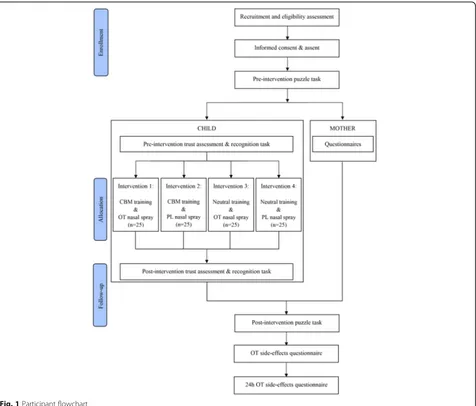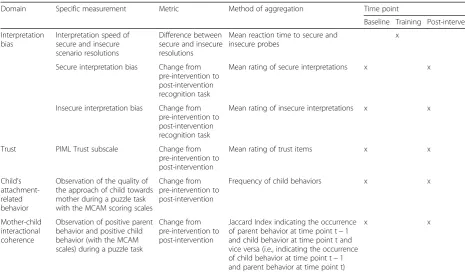The effects of Cognitive Bias Modification training and oxytocin administration on trust in maternal support: study protocol for a randomized controlled trial
Full text
Figure



Related documents
Heim N, Griesbeck O (2004 ) Genetically encoded indicators of cellular calcium dynamics based on troponin C and green fluorescent protein. Heim R, Tsien RY (1996 ) Engineering
Therefore, we aimed to evaluate the clinical relevance of various definitions of sarcopenia from the geriatric perspective, in a prospective cohort of the Aging Study of
literature search did not reveal any study evaluating the effect of cough lozenges on the properties of teeth; whether they reduce the micro-hardness of the
The first study showed that super-dosing CEP up to 6,000 FTU/kg to P and Ca deficient diets enhanced growth performance, bone characteristics, apparent ileal digestibility, and gut
The fitness of a given female genotype is a function of the number of sex alleles in the population, the number of matings by an individual female and the
The present study was undertaken to examine the immunomodulatory role of morphine on HIV protein-induced lymphocyte proliferative responses, Sendai and Newcastle disease
Every one of the proposed conspire are introduced in the accompanying sections of this paper The proposed concept is to the controller associated with the grid will
A novel secure cloud storage system is proposed to ensure the protection of organizations ’ data from both the cloud provider and the third party auditor and from some users who